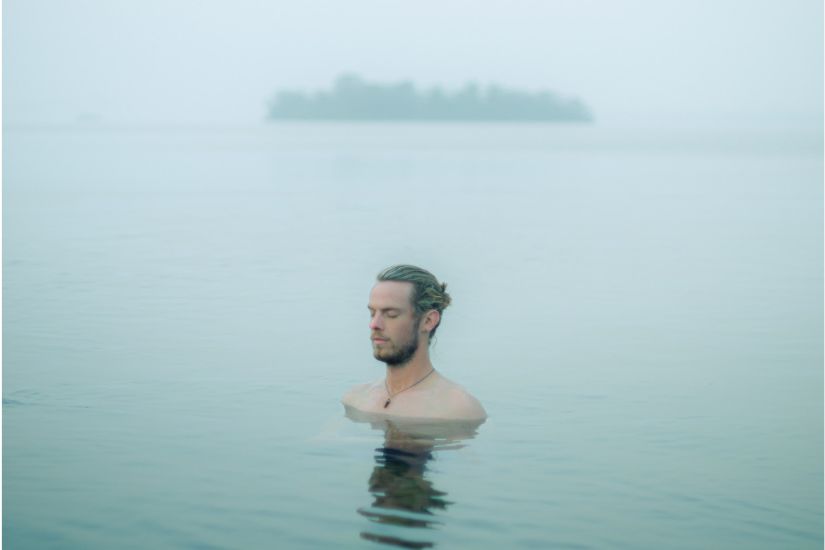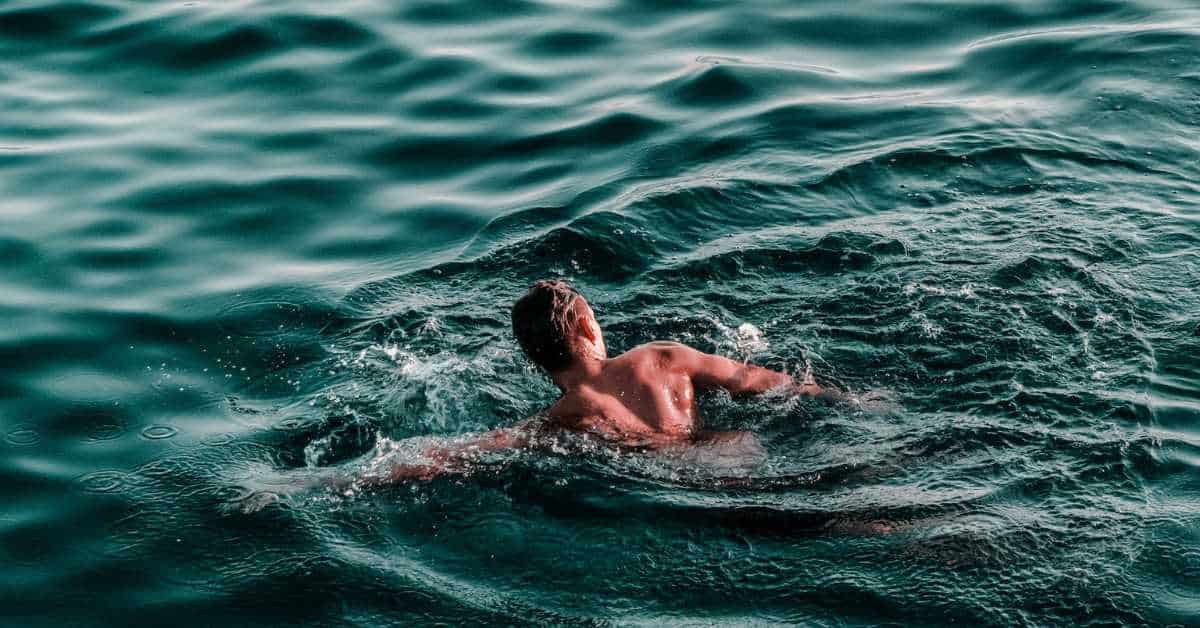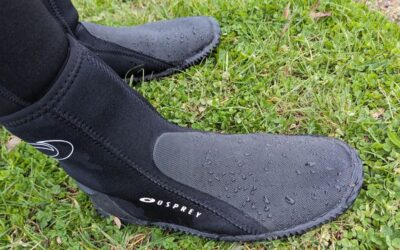Are you ready to take a plunge into a world of invigorating sensations?
Brace yourself for the icy embrace of cold water, an experience that not only awakens your senses but also brings forth a myriad of benefits for both body and mind.
In this article, we’ll explore the benefits of cold water swimming in wild places, both for the body and the mind, as well as provide top tips for getting started and staying safe.
What is Wild Swimming?
For those seeking a unique and thrilling adventure, wild swimming presents an exhilarating opportunity.
Wild swimming simply refers to the act of swimming in natural bodies of water, such as lakes, rivers, or the sea, rather than in man-made or controlled environments like swimming pools.
It is a form of outdoor swimming that allows individuals to connect with nature and experience the unique sensations and challenges that come with swimming in natural settings.
Wild swimming often takes place in secluded or less-frequented areas such as the picturesque lakes and pools found within the Lake District, offering a sense of adventure and a chance to explore the beauty of untouched landscapes.
It allows swimmers to immerse themselves in the elements, embrace the varying water temperatures, and enjoy the freedom and serenity that nature provides.

Cold Water Therapy: The Chills That Heal
Beyond the invigorating joy of wild swimming, exposure to cold water offers numerous physical and mental health benefits.
The physical benefits of cold water swimming encompass a range of advantages that positively impact your body and overall well-being.
Whereas, the mental benefits of cold water swimming go beyond the physical realm, offering a unique opportunity to enhance your mental clarity, boost your mood, and cultivate a deep sense of serenity and mindfulness.
Let’s dive into and discover the incredible health benefits of cold water swimming…
Disclaimer: If you make a purchase via the links on our site, I may earn an affiliate commission at no additional cost to you. You can read my affiliate disclosure in the privacy policy. Thanks for your support!
#1 Increased Circulation
When you immerse yourself in cold water, your body reacts by constricting blood vessels in the skin and extremities, directing blood flow to vital organs. This mechanism, known as vasoconstriction, stimulates circulation and promotes better overall blood flow.

#2 Enhanced Immune System
Cold water swimming has been linked to an improved immune system response. Exposure to cold water stimulates the production of white blood cells, strengthening your body’s defence against illnesses and infections.
#3 Improved Cardiovascular Health
Regular cold water swimming can contribute to a healthier heart and cardiovascular system. The cold water acts as a natural workout for your heart, making it pump harder to circulate blood effectively. Over time, this can lead to increased cardiac efficiency and improved cardiovascular health.

#4 Increased Metabolism
The shock of cold water on your body causes an increase in metabolic rate, as your body works harder to maintain its core temperature. This boost in metabolism can help with weight management and provide an energy boost throughout the day.
#5 Reduced Inflammation
Cold water swimming has anti-inflammatory effects on the body. It can help reduce inflammation in joints and muscles, providing relief for conditions such as arthritis and speeding up post-workout recovery.

#5 Boosted Mood and Energy
Cold water swimming triggers the release of endorphins, the body’s natural mood-enhancing chemicals. The rush of these feel-good hormones can leave you with a sense of euphoria and increased energy levels.
#6 Stress Relief
Immersing yourself in cold water can be a powerful stress reliever. The combination of the cold shock and the meditative effect of swimming can help alleviate anxiety, reduce stress levels, and promote a sense of calm and relaxation.

#7 Increased Mental Resilience
Regular cold water swimming can build mental resilience and strengthen your ability to cope with challenging situations. The act of willingly facing the discomfort of cold water and pushing through it can translate to improved mental toughness and resilience in other areas of life.

#8 Improved Focus and Concentration
Cold water swimming has been shown to enhance mental clarity, focus, and concentration. The shock of the cold water stimulates your senses and can help sharpen your mental acuity, allowing you to stay more focused and attentive throughout the day.

#9 Enhanced Sleep
Taking a dip in cold water can have a positive impact on your sleep quality. The drop in body temperature after cold water swimming can promote deeper and more restful sleep, helping you wake up refreshed and rejuvenated.

Health Conditions and Cold Water Swimming
Cold Water Swimming and Arthritis
Cold water swimming can provide relief for arthritis symptoms. The cold water helps reduce joint inflammation and stiffness, providing temporary pain relief and improving mobility for individuals with arthritis.
Cold Water Swimming and Depression
The release of endorphins during cold water swimming can have a positive impact on mental health conditions such as depression. The combination of the natural high from endorphins and the meditative nature of swimming can contribute to improved mood and a reduction in depressive symptoms.
Cold Water Swimming and Asthma
For individuals with asthma, cold water swimming can help strengthen respiratory muscles and improve lung function. The controlled breathing required during swimming exercises the lungs, potentially leading to better asthma control and reduced symptoms.
Safety First: Tips for Cold Water Activities
While engaging in cold water activities can be invigorating and beneficial, it’s important to prioritize safety. Here are a few tips to keep in mind:
- Gradual acclimation: Start with shorter durations in cold water and gradually increase the time as your body adjusts. Allow your body to adapt to the temperature changes to avoid potential shock to your system.
- Proper attire: Wearing appropriate gear, such as a wetsuit, can help insulate your body and prevent rapid heat loss during cold water swims. Additionally, consider using swim caps and earplugs to protect your extremities and prevent water from entering your ears.
- Be aware of hypothermia: Hypothermia is a serious condition that can occur when your body loses heat faster than it can produce it. Be aware of the signs of hypothermia, such as shivering, confusion, and drowsiness. If you or your swimming companion show any symptoms, seek immediate medical attention.
- Know your limits: Pay attention to your body’s signals. If you start feeling excessively cold or fatigued, it’s essential to exit the water and warm up to avoid any adverse effects.
- Buddy system: Whenever possible, engage in cold water activities with a partner. Having someone with you ensures mutual support and assistance if needed.
Tips for Getting Started
Before embarking on your cold water escapades, it’s essential to prepare adequately. Here are a few tips to ensure a safe and enjoyable experience:
- Research your chosen location: Familiarize yourself with the area where you plan to engage in cold water activities. Understand the water conditions, any potential hazards, and the best entry and exit points. Knowledge of the surroundings will help you make informed decisions and stay safe.
- Preparing for a Cold Water Swim: Before your swim, make sure to hydrate properly and have a light snack for energy. Dress appropriately, considering the water temperature, and apply a layer of petroleum jelly to exposed skin to protect it from the cold.
- Duration and Frequency: Start with shorter swims and gradually increase your swim duration as your body becomes accustomed to the cold water. Aim for consistency rather than pushing for longer swims, and listen to your body’s cues to determine the frequency of your cold water swimming sessions.
- Warm up before and after: Engage in light physical activity or stretching before entering the cold water to prepare your body. After your cold water adventure, take time to warm up gradually, change into dry clothes, and enjoy a warm beverage to aid in the recovery process.
- Stay hydrated: Despite the cold temperatures, it’s crucial to stay hydrated. Cold water activities can still cause you to sweat and lose fluids, so remember to drink water before, during, and after your adventure.
- Listen to your body: Pay attention to any signs of discomfort or fatigue during your cold water activities. If you start feeling excessively cold, numb, or dizzy, it’s important to exit the water and seek warmth immediately.

Post-Swim Care
After your cold water swim, take the following steps to ensure proper recovery and care for your body:
- Warm Up: Immediately after exiting the water, change into warm, dry clothes and cover yourself with a blanket or towel to prevent further heat loss. Consider packing a changing robe and a thermos of hot water or a warm beverage to help raise your body temperature.
- Hydrate and Refuel: Drink warm fluids to replenish your body and restore hydration. Enjoy a nutritious snack or meal that includes carbohydrates and protein to support muscle recovery.
- Stretch and Relax: Engage in gentle stretching exercises to promote blood circulation and relieve any muscle tension or stiffness. Incorporate relaxation techniques such as deep breathing or meditation to further unwind.
- Warm Shower: Take a warm shower to gradually raise your body temperature. Avoid hot showers, as they may cause a sudden drop in blood pressure.
- Moisturize: Cold water swimming can deplete your skin’s natural moisture. Apply a moisturizing lotion or cream to nourish and hydrate your skin.
- Rest and Recover: Allow your body time to rest and recover after a cold water swim. Get sufficient sleep and listen to your body’s cues for any signs of fatigue or overexertion.
Sharing the Joy of Cold Water Activities
Cold water activities, such as wild swimming, not only benefit you but also provide an opportunity to connect with others who share a love for nature and adventure.
Consider joining local communities or groups that partake in cold water activities to expand your network and share experiences. Engaging in these activities together creates a sense of camaraderie and encourages exploration in a safe and supportive environment.
Final Thoughts…
In a world that often encourages comfort and complacency, embracing the benefits of cold water swimming can be a life-changing experience. From the invigorating rush of plunging into chilly waters to the profound connection with nature and the transformative effects on your physical and mental well-being, the rewards are abundant.
Stepping outside your comfort zone and immersing yourself in the natural elements allows you to discover a sense of liberation, resilience, and joy. The cold water becomes a catalyst for personal growth, pushing you to conquer fears, build inner strength, and appreciate the beauty of the world around you.
So, whether you choose to explore wild swimming or other outdoor activities, let the cold water be your guide to a deeper connection with yourself and the natural world.
Embrace the unknown, savour the exhilaration, and unleash your adventurous spirit. Your journey awaits.
Cold Water Swimming FAQ
Is cold water swimming healthy?
Cold water swimming can have various health benefits. It can improve circulation, boost the immune system, and enhance cardiovascular health. Cold water can also stimulate the release of endorphins, promoting a sense of well-being and reducing stress. However, it is important to approach cold water swimming safely, gradually acclimate to the temperature, and be aware of any individual health conditions or limitations.
What are the disadvantages of swimming in cold water?
Swimming in cold water does come with some potential risks. Prolonged exposure to cold water can lead to hypothermia, a condition in which the body loses heat faster than it can produce it. Cold water can also cause vasoconstriction, increasing the strain on the heart. Additionally, there is a higher risk of accidents and drowning when swimming in open water compared to controlled pool environments. It is crucial to be aware of these risks and take necessary precautions when engaging in cold water swimming.
How long should you swim in cold water?
The duration of cold water swimming can vary depending on an individual’s experience and tolerance. It is advisable to start with shorter swims and gradually increase the time spent in the water as your body adjusts to the cold. Pay attention to your body’s signals and exit the water if you start feeling excessively cold or fatigued. It is recommended to seek advice from experienced cold water swimmers or healthcare professionals for personalized guidance.
Does swimming in cold water burn fat?
Swimming in cold water may have some potential benefits for weight management. When exposed to cold temperatures, the body needs to work harder to maintain its core temperature, which can result in increased calorie expenditure. However, the impact of cold water swimming on fat burning is individual and can vary based on factors such as intensity, duration, and individual metabolism. It is important to approach swimming in cold water as part of a holistic approach to fitness and weight management.
How many times a week should you swim in cold water?
The frequency of cold water swimming depends on your comfort level, experience, and individual goals. It is advisable to start gradually, allowing your body to adapt to the cold water temperatures. Some people may enjoy swimming in cold water once or twice a week, while others may prefer more frequent swims. Listen to your body, assess how you feel after each swim, and adjust the frequency accordingly. Consulting with a healthcare professional or experienced cold water swimmers can also provide valuable insights based on your specific circumstances.
Can children and beginners participate in cold water activities?
With proper supervision and guidance, children and beginners can participate in cold water activities. It’s important to ensure their safety by providing them with appropriate protective gear, teaching them about water safety, and starting with shorter durations in less challenging conditions. Supervision by experienced individuals is crucial to ensure a safe and enjoyable experience for children and beginners.

About the Author
Steve Cleverdon is an adventure blogger dedicated to helping outdoor enthusiasts make the most of their outdoor experiences. With years of travel and many epic adventures including a 3000-kilometre solo hike across New Zealand, Steve has amassed practical knowledge on outdoor gear. You can learn more about his adventures here. Through expert reviews, recommendations, and guides, he equips his readers with the best gear for their next adventure. If you want to send Steve a quick message, visit his contact page here.




